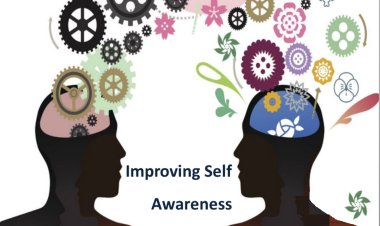Dangerous Lies Teen Girls Believe
The dangers from believing lies increases in teens because it leads to toxic behavior. Knowing the lies teen girls believe is the first step to health.

To have access to cutting-edge medical care is a blessing for which I have no adequate words. I arrived to a firm conclusion after researching medieval medicinal methods. With the wounds I've received, I would have perished at a young age if I'd been around back then. Some medieval medical interventions seem utterly horrific. Surgeons used to use a toxic and unrefined substance called Dwale to put patients to sleep before the advent of general anesthesia. Three tablespoons of hemlock juice, extracted from a poisonous plant, were among its contents. Doctors were led astray by false information or made decisions that harmed or even killed their patients.

In most cases, bad things happen when people believe lies. Truth detection is a skill that requires practice at any age, but especially for our children. When our children reach their teenage years, the risk they face from believing lies grows because many lies result in harmful actions. As parents, it is our responsibility to help our children discover who they really are and what they can expect from this world. To achieve that successfully, we must first locate the fabrications. We're going to zero in on young women today. Here are three false beliefs that put young women in risk.
1. “I need to look or be a certain way to be loved.”
To a large extent, the media and the fashion and beauty industry only show one type of woman and declare, "This is beauty." Immature adolescent boys accept this standard of beauty at face value and fight over the ladies they perceive to be the most physically attractive. Teenage girls may believe this furthers the false notion that they should conform to societal standards of beauty. Many young women strive to achieve this ideal because they believe they must do so to be loved. They will stop at nothing to realize their goal. When a young woman reaches puberty, she no longer accepts herself as she is, but rather how society expects her to be. Few teenage girls believe they fit that ideal, and when they realize it, their self-esteem plummets. She tells herself that if she loses weight, everyone would like her. I'm an outsider here. Compared to other gals, I just don't measure up. People won't like me if I'm honest with them. If others know the truth about me, they'll reject me. I don't have any good looks. I can't seem to master anything. No one will ever adore me.
2. “My self-worth depends on the approval or attention of others.”
If a teen girl buys into this myth, she will put all of her energy into trying to please everyone around her. She struggles under the pressure of wanting to please her family, her peers, and her coaches. She stops feeling good about herself if she gets rejected or ignored. As time goes on, her desperation grows. She will resort to ever more extreme measures to win your love and admiration. Eff0rts like this can include giving up her fundamental values, giving in to peer pressure, trying drugs or alcohol, or indulging in sexual behavior. She tells herself the untruth that "I have to be perfect" when she falls for this deception. I can never be good enough. No one cares about me. I have no value. If I had a boyfriend, I'd feel complete. I don't matter at all. To put it bluntly, I'm not valuable. I have a bad reputation among my peers. In order to feel good about myself, I have to strive to achieve specific goals. To feel good about myself, I need other people to like me. There is no hope for me. Yes, I am an idiot. I have a hard time forming meaningful friendships.
3. “I’m ruined.”
If the second lie is believed and she ends up feeling like she doesn't belong, she may begin to believe that she is doomed and can never be successful again. When she makes a morally questionable decision, she is overcome with guilt and shame. She feels helpless in the face of her remorse and shame, so she tries to bury it or numb it. It's possible she'll become disinterested or defiant. When she believes this untruth, she says to herself: "I'm a failure. People who don't succeed are hateful and deserving of punishment. Nowadays, it's all irrelevant. Nothing I do will make a difference.

Watch out for telltale clues that she actually believes these falsehoods. Stop them from taking hold of her thoughts and actions. Every day, tell her how wonderful she is and how much you appreciate her.












